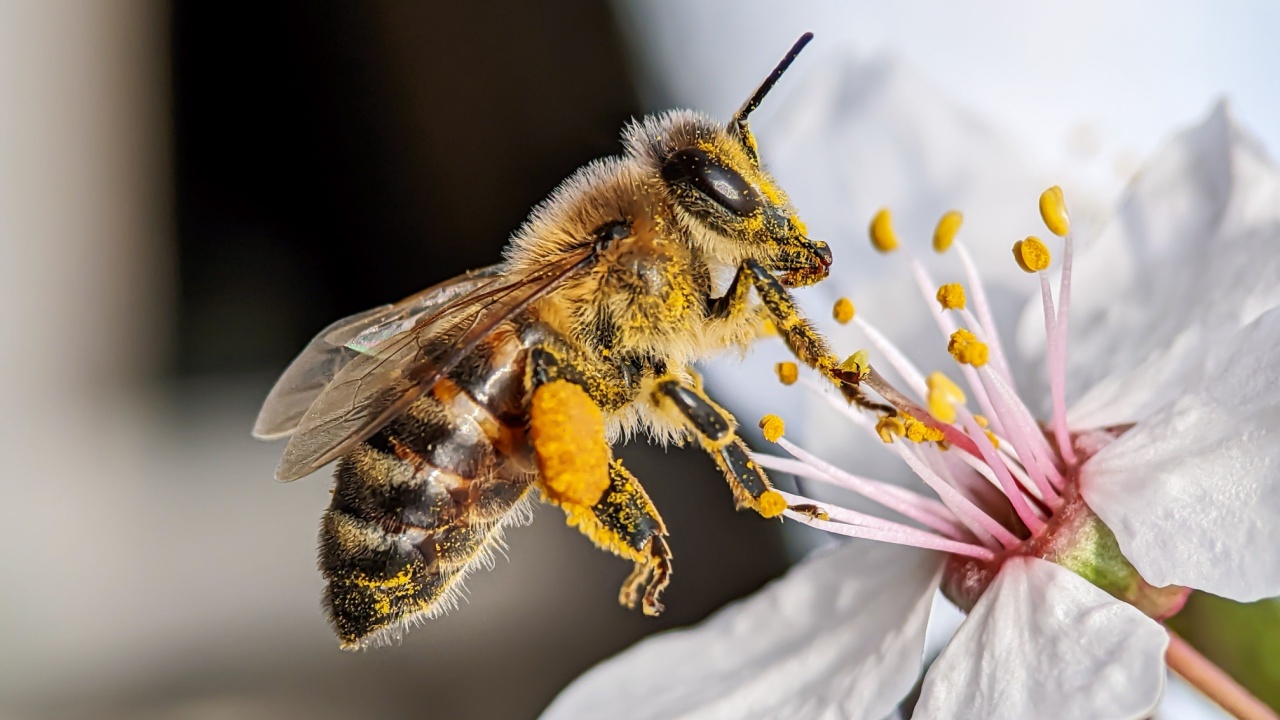Harvesting honey from their own beehives is a sweet and delicious reward for beekeepers and those who purchase it from them. Bees work hard to gather pollen and make honey, so you might wonder how this affects their ecosystem. Do they have enough to eat? Do they get mad that their honey is being taken?
Harvesting honey does not anger or hurt the bees unless you are greedy and take too much. When done properly, bees are undisturbed when honey is harvested. Responsible beekeepers always leave enough honey for the hive. And while it’s not normal for bees to get irritated when you collect the honey, there can be factors that lead to aggression in bees.
There are some real reasons why bees sometimes get mad. An angry colony of bees is every beekeeper’s worst nightmare. If you notice your bees being aggressive and defensive, there might be underlying factors causing this behavior. Be careful if you need to get near the hive, as you’ll be surrounded by angry bees. Let’s look at the possible reasons why.
1. Weather

Image Credit: Shutterstock.
Hot, humid weather makes bees moody (who can blame them). Most seasoned beekeepers know that honeybees like calm days with lots of sunshine, and get moody when the days are windy, rainy, or cloudy.
If a storm is on the horizon and bringing in foul weather, it’s best to keep your distance from the bees. You can also make sure that their hive is in a safe spot that won’t be affected by any wild weather that comes through.
2. No Queen

Image Credit: Shutterstock.
When the queen dies or goes missing, the hive knows she’s gone immediately. The pheromones she releases to keep the colony calm and unified are now gone, and that’s a problem.
They become defensive and aggressive as they try to re-queen the hive and remain protective until the new queen emerges, mates, and calms down the hive.
3. Opening the Hive Too Much

Image Credit: Shutterstock.
Excessive hive inspections and handling of the frames alert the bees to become protective. Sometimes, after a thorough hive inspection, bees stay angry for a few days. If you want to inspect your hive and avoid angry bees, choose a late morning or early afternoon sunny day.
Make sure you use your smoker to calm the bee’s nerves. Clumbsy beekeepers can also add to the problem and make them nervous, so keep a steady hand.
4. Angry Queen

Image Credit: Shutterstock.
Just like any animal, personalities differ. The queen’s temperament and personality are projected on all the other bees in the hive. If you have a nasty queen, your bees will behave in the same way.
In this instance, it is advised to re-queen your hive with a calmer one.
5. Hunger

Image Credit: Shutterstock.
Bees who are thirsty and hungry can become cranky. Keep an eye on the pollen and nectar in your bees’ foraging fields and feed your bees if there is a shortage.
Once again, any human can relate to a “hangry” bee that can’t find their next meal.
6. Predators

Image Credit: Shutterstock.
When predators like skunks and possums lurk around your hive, it will make your bees defensive. You might have to do some investigation to find the culprit who disturbs your bees at night.
Skunks like to sit outside the hive at night during the summer when bees try to cool the hive by bearding, and eating the bees one by one until they have enough.
7. Crossbreeding

Image Credit: Shutterstock.
East African honeybees are genetically aggressive. When honeybees crossbreed, it is called Africanization. Crossbreeding between European or North American and East African bees creates an aggressive breed of honeybee.
Young virgin queens will mate with drones flying around the area, adding their aggressive genetics to local colonies. It is still possible to have your colony Africanized even if you live in an area where Africanized bees are not found. If you suspect your virgin queen mated with drones, you should re-queen the hive with a mated queen and hope it changes the situation.
How To Calm Down Bees That Are Mad

Image Credit: Shutterstock.
Bees don’t fly around just to sting you. They only react defensively when they feel threatened. When you are inspecting your bees, it can be stressful for them. If you feel nervous or anxious while working with your bees, it can lead to stings, so it’s vital to remain calm while working with the bees.
Here are a few points to remember when handling your bees based on my own experience beekeeping:
- Be gentle and take your time
- Stay calm and relaxed when working with the bees
- Don’t over-inspect the hives
- Pay attention to the weather and try to do your work on sunny days
- Use a bee smoker correctly
- Wear white
Even if you aren’t a beekeeper, we all encounter bees sometimes. Keeping calm can make all the difference then, too.

